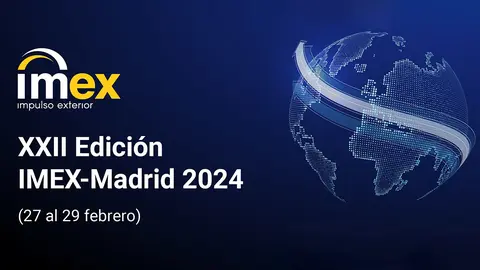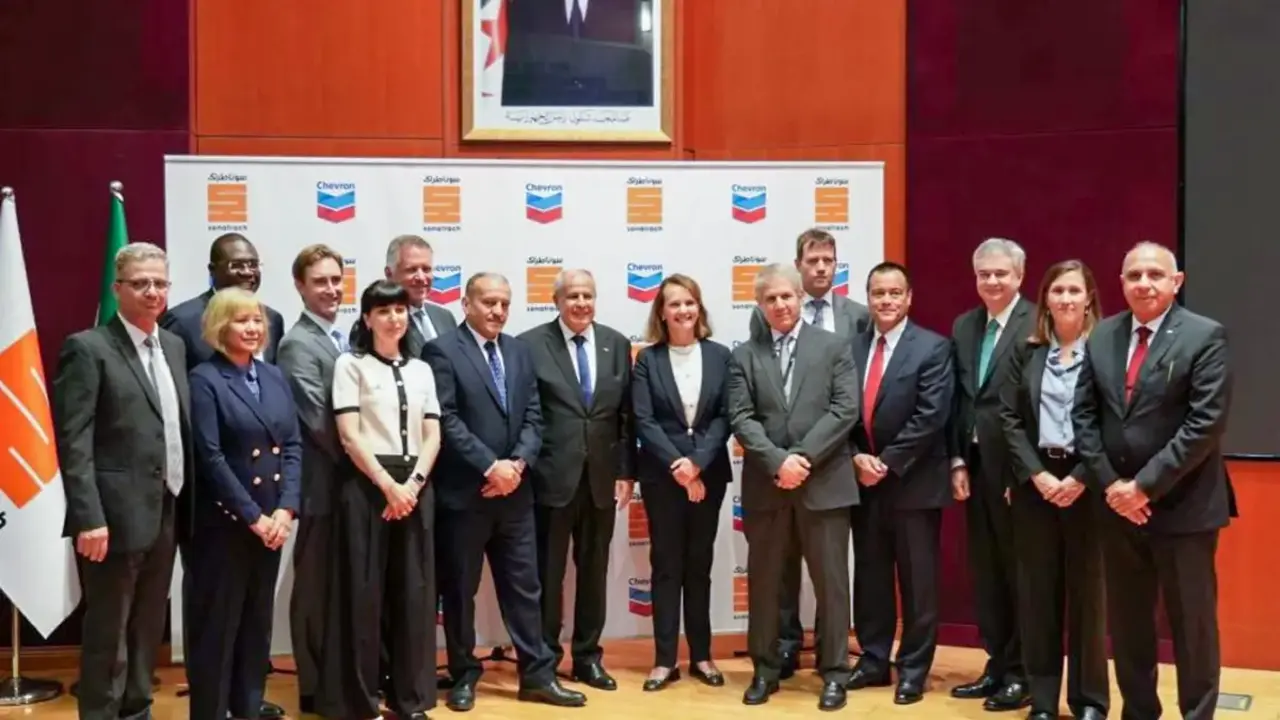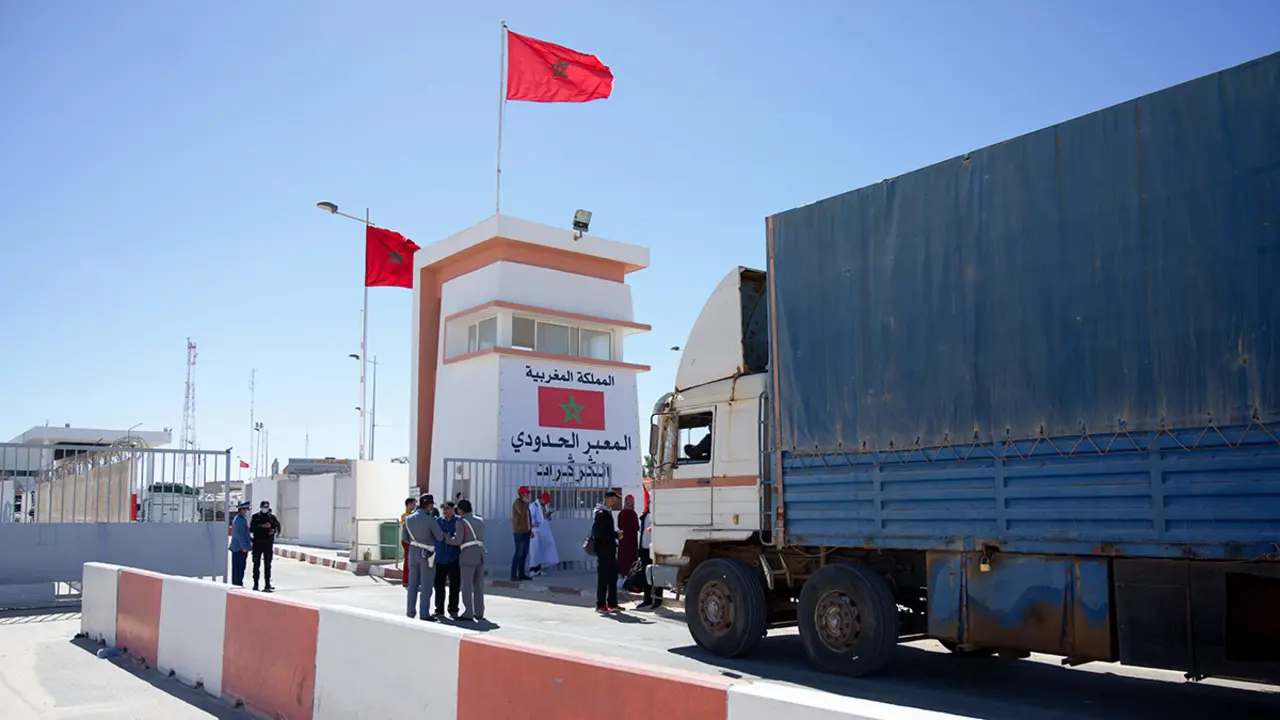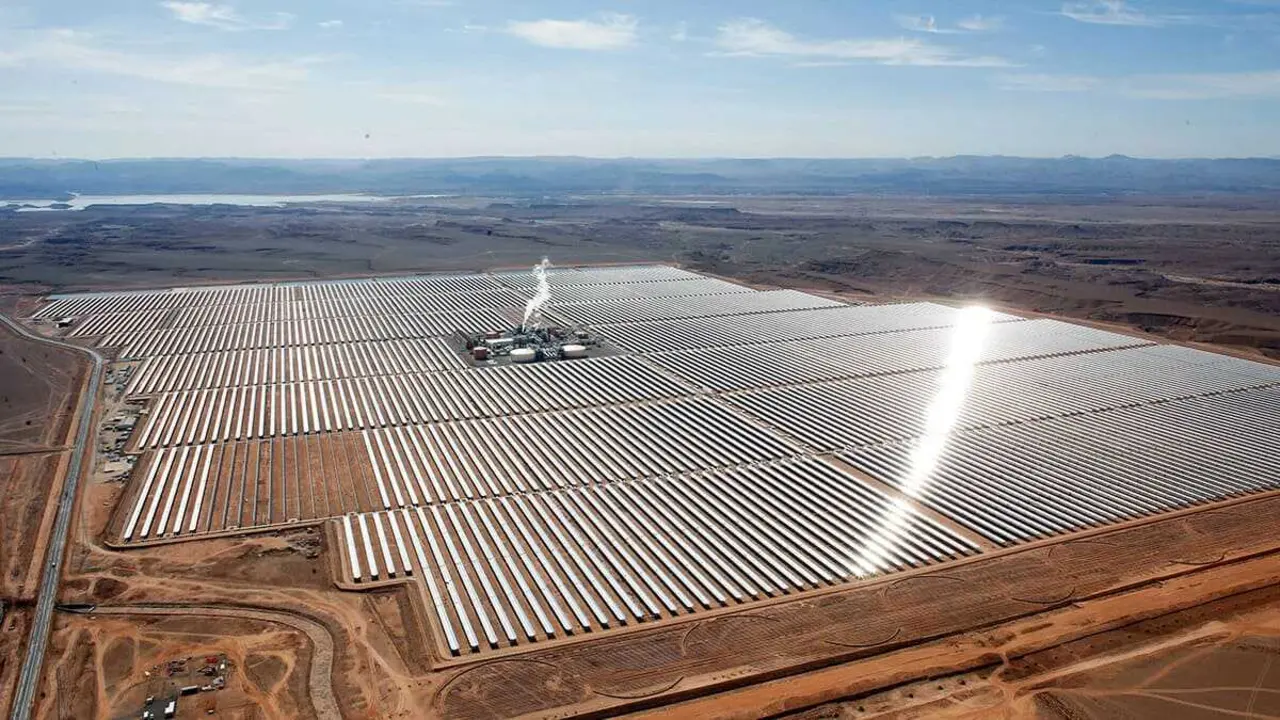IMEX-Madrid, the commitment to internationalisation, gets underway
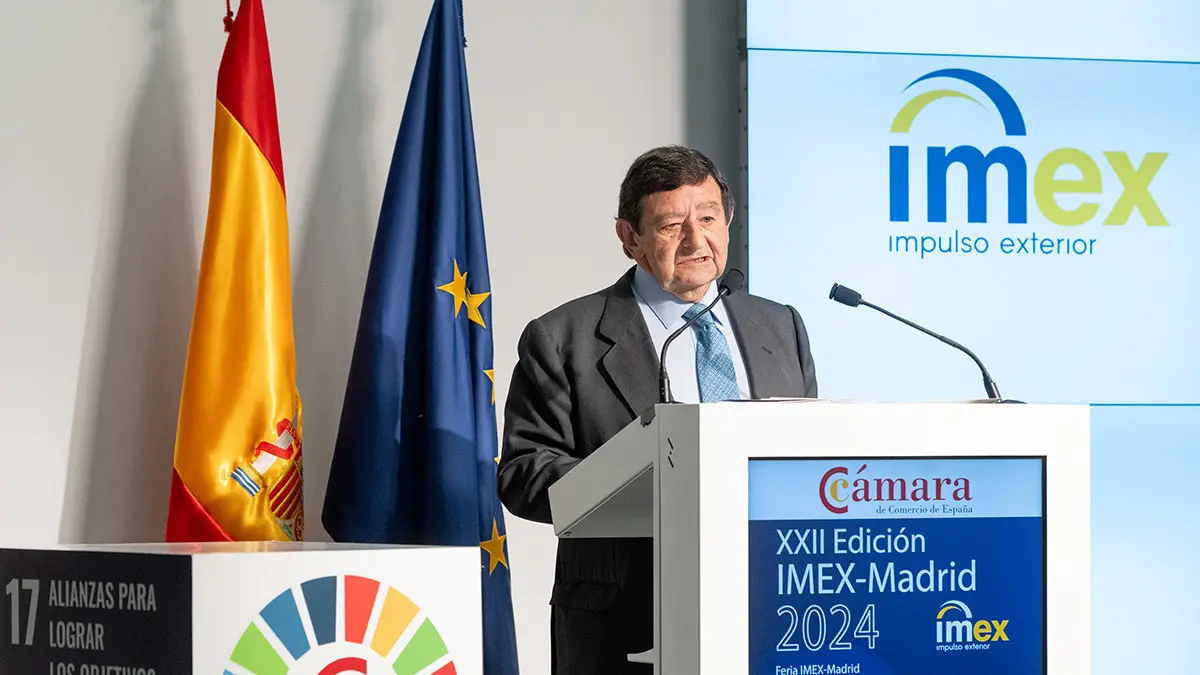
The 22nd edition of IMEX, the international business and foreign trade fair, organised by the magazine Moneda Única, began this morning in Madrid with a clear objective: to improve the competitiveness of small and medium-sized companies through internationalisation. The good figures for foreign trade in 2023, the need for public-private collaboration and the challenges that Spanish companies must face were some of the other topics addressed on the first day of this meeting, led by José Terreros, director of IMEX-Impulso Exterior.

Over three days, 27, 28 and 29 February, different debates and conferences will be held around four main themes: the application of Artificial Intelligence in business development; the African impulse; the role of ports in internationalisation; and the agri-food sector in the global context. In addition, there will be an opportunity for the exchange of experiences and the meeting of companies and consultancies.
During the opening ceremony, Jaime Montalvo Domínguez, International Director of the Spanish Chamber of Commerce, after his words of welcome and thanks, highlighted "the good news" that the Spanish foreign sector has been giving since last year "in spite of the complex and uncertain environment in which we live". Montalvo alluded to the good results of 2023, in which Spain has grown more than the main EU countries, with capital goods, food, the chemical sector and the automotive industry being the main sectors. This growth is 32% higher than the figures obtained before the pandemic, thanks, he stressed, to Spanish companies that invest, innovate and trade.

He also wanted to make it clear that Spanish companies, in their commitment to internationalisation, are not alone, as they have the support of public and private institutions such as the Chambers of Commerce, and that they will continue to work to meet the challenges imposed by the new global context. "Our future competitiveness will depend on Europe's capacity," said Montalvo.
Javier Serra Guevara, Director General of Institutional Cooperation and Coordination at ICEX, took the floor to stress that we are living in times of change and that it is important for companies to have the tools to tackle them. "We have to be global as well as local and this is a challenge," said Serra, who recalled that issues such as security, resilience and geopolitics are gaining weight against factors such as cost criteria.

The ICEX executive also referred to the commitment that Spanish companies have been making over the last fifteen years to internationalisation, resorting, for example, to the diversification of suppliers, and also spoke of the major changes such as the transformation of logistics, digitalisation, the new data economy and artificial intelligence. Another key element, he said, is the importance of sustainability as an attribute in the competitiveness of companies.
Finally, he referred to the dynamism and resilience of Spanish companies and the good data in 2023, despite the existing problems, which have led to a "record in the export of goods", and growth at a faster rate than European partners.
Narciso Casado Martín, permanent secretary of the Council of Ibero-American Businessmen (CEIB) and director general of CEOE International, also took part in this inaugural event. He spoke of the growing importance of IMEX to promote foreign trade and contribute to the growth of companies, an objective that he shares, he said, with the CEOE.

The executive explained the "network effect" and the contribution that institutions, together with the efforts of companies, must make to promote internationalisation. He pointed out that this effect occurs in the case of the CEOE through the IOE, by joining forces and promoting growth, investment and development, "we want companies to cross borders to make states more resilient, and we generate spaces for reflection and debate such as the Ibero-American business meetings that accompany the State summits".
Casado Martín described public-private collaboration as "essential" and gave as an example the "Ibero-American Manifesto for Development", which is a social pact that commits all actors to sustainable development and in which the challenge of digital transformation, overcoming gaps, infrastructure challenges, and investment in companies that have a triple impact: economic, environmental and social.
Likewise, and as part of this internationalisation, he advocated greater legal openness, the establishment of free trade agreements, regional cooperation, the exchange of resources and technology...
The executive reiterated the commitment to SMEs, "which are the driving force of the business fabric", and the need to lead the change in production chains and work together for internationalisation, "the tripartite, we are setting an example", he said.
Finally, Jaime Ussía Muñoz-Seca, President of IMEX-Impulso Exterior, shared some concerns, because, although the data on Spanish exports are very positive, it is also true, he stressed, that there are signs of a certain stagnation or standstill. Ussía also referred to the drop in productivity over the last five years in Spain, to wage rises and other factors that influence competitiveness and to the populist decisions that have sometimes been taken.
Regarding the XXII edition of IMEX in Madrid, he thanked the Chamber for hosting, for the first time, the opening ceremony, highlighted the interventions and the topics that will be addressed during three days, mainly on Artificial Intelligence; the African impulse; the role of ports in internationalisation; and the agri-food sector in the global context; and spoke of other editions held in communities such as Andalusia, Catalonia, Asturias, Valencia or Castilla-Leon in order to promote internationalisation.
The Secretary of State for Trade, Xiana Méndez Bértolo, in a video for being in the United Arab Emirates, highlighted the importance of this fair and its support for improving the competitiveness of SMEs. She also expressed her satisfaction with the figures obtained in foreign trade in 2023, which amount to 383,000 million euros, very close to the 400,000 set for 2027; in imports, to the value of 424,000 million euros and with a coverage rate of more than 90%. This dynamism in imports has made it possible, she said, to reduce the trade deficit from 71 to 43 billion euros.

Finally, she highlighted the growth of the economy at 2.5%, a figure five times higher than the average for the Eurozone, and the forecast for 2024, which he expects to be around 2%.
"Foreign trade is showing great resilience thanks to Spanish companies in the foreign sector," she said.


